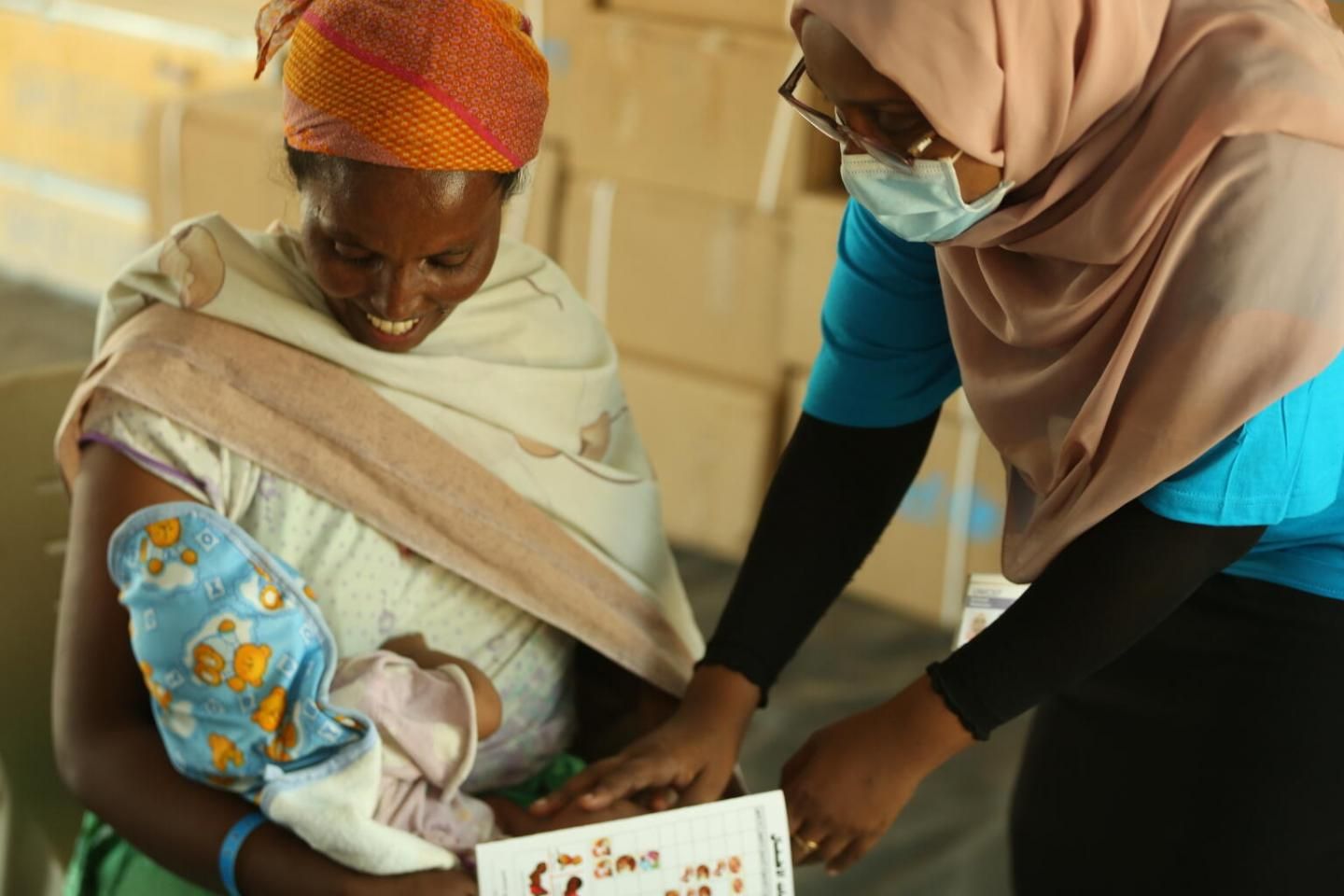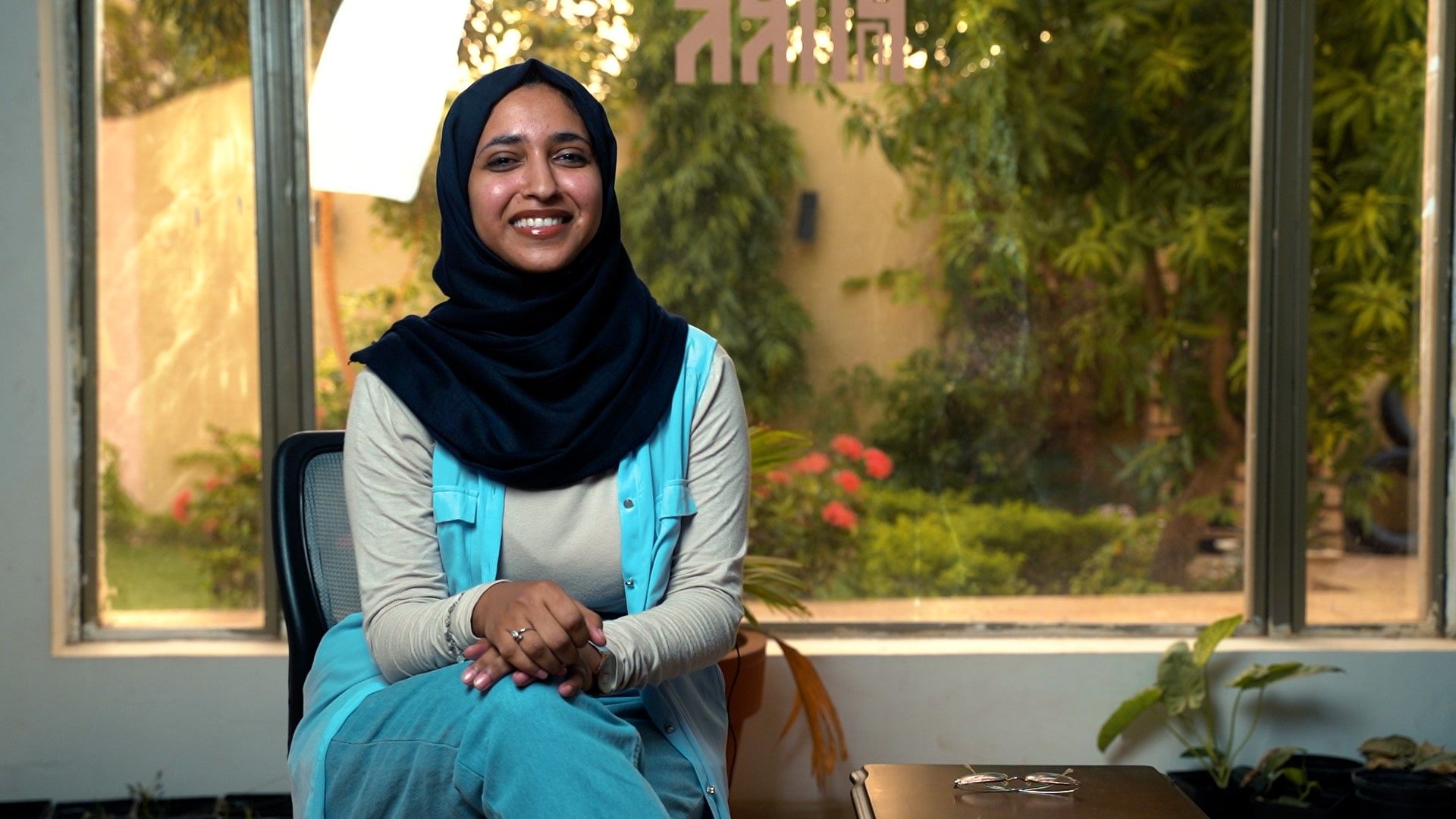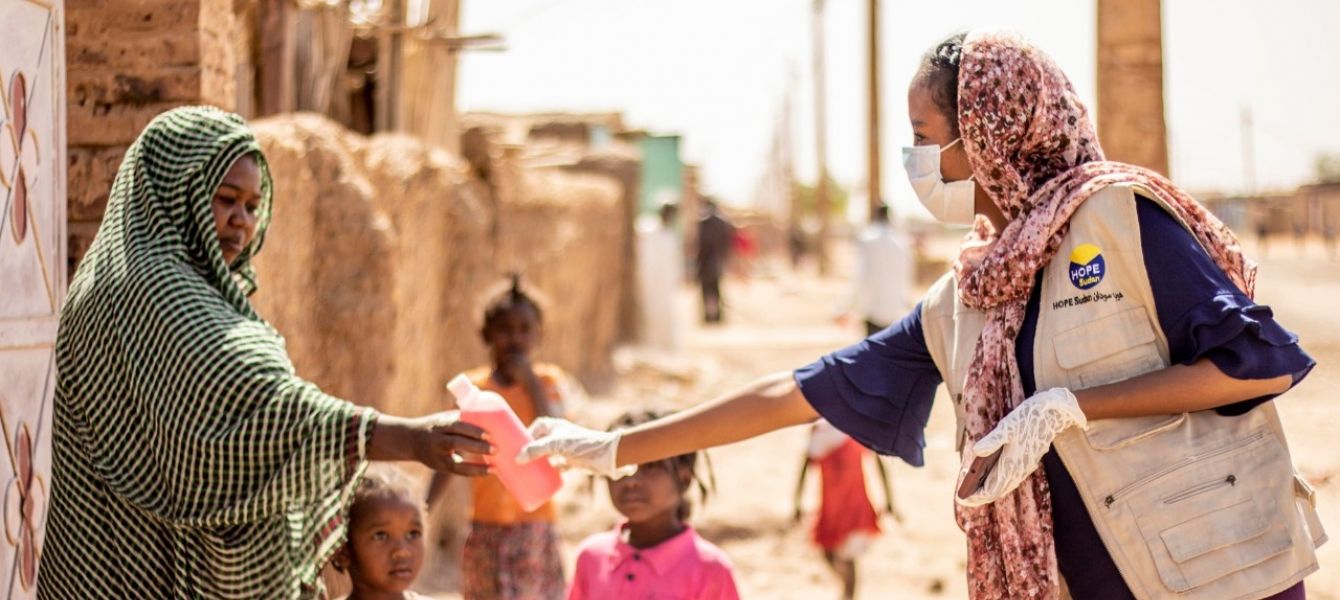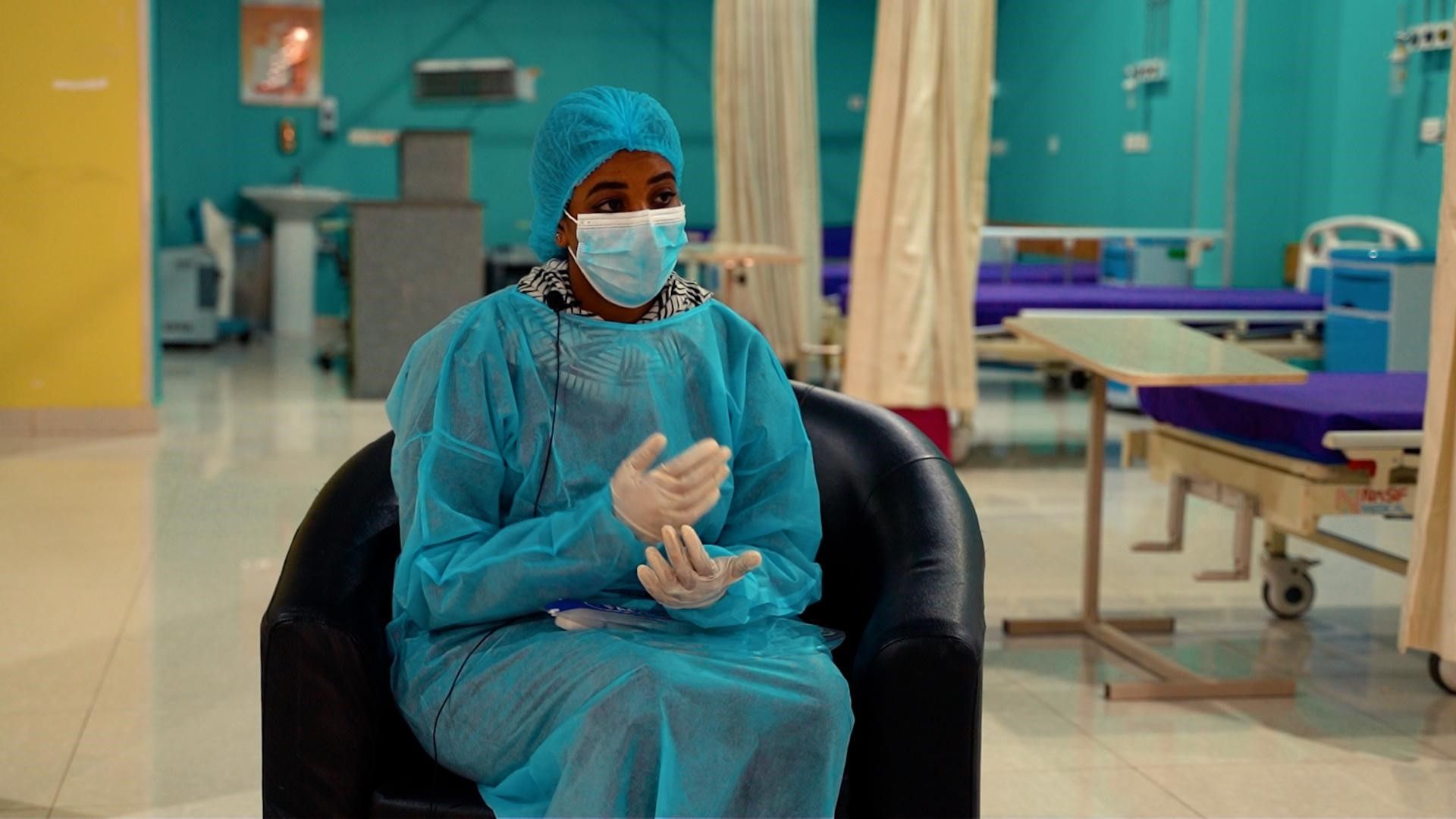
A health worker attends to a woman and her baby at a vaccination center in Sudan. Source: UNICEF Sudan/2020/Abdalkarim
As if it was a scene from the popular movie Titanic, in times of crisis, evacuate the children, women, and the elderly, and the COVID19 pandemic was no different. When the vaccination window rolled out in Sudan and other countries across the world, women's early access to the vaccine was highly prioritized by the authorities, but this has not guaranteed a high turnout and vaccine intake.
Statistics illustrate that even though vaccines are now more available than they were at the beginning of the COVID-19 pandemic, women are still less likely to get them. In this article, we discuss the gender gap as it pertains to the vaccination rate and how we can help even the scales in this department.
Hesitancy Vs Reluctance? A Synonyms Battle?
Hesitancy and reluctance might seem like the same thing, after all, the dictionary does put them in one category as synonyms. Yet when looking at them from a scientific lens, it is important to point out when women are reluctant to have the vaccine, and when they are merely hesitant.
The distinction is necessary as it shows the inherent intent. When someone is hesitant, there is a conviction related to whether it relates to the validity of the vaccine itself, or the necessity of protecting oneself through the vaccine. Reluctant means the opposite, but when comparing different reports and statistics it is apparent that most women are hesitant rather than reluctant, which boils the issue down to a lack of knowledge regarding the vaccine even if there's a conviction towards it.
According to the Stanford University gender studies center, women are significantly more likely to express a desire to delay or reject the Covid-19 vaccine than men -which is consistent with the existing literature on vaccine hesitancy. Women are also more likely than men to state that the vaccine was too new, that they were fearful of side effects, and that they had a medical contraindication to the vaccine. Men and women are equally likely to state that their philosophical or religious beliefs prohibit vaccination"
This take is especially poignant due to the fact that a very large majority of health care workers who were first responders to the pandemic were indeed women, especially in Sudan. It is also worth mentioning that the younger health workers are less likely to get vaccinated as they believe that the vaccine was hurriedly approved, even though it was only approved because it belongs to a family of viruses that science already has plenty of information on.
During a recent interview with Andariya, Dr. Zeinab Elnoush, a health practitioner in Sudan, noted that some medical professionals are declining to get vaccinated in Sudan. "One must listen to medical professionals as they know what they are talking about. However, even if the vaccine having been approved early might raise eyebrows, it is only because there is data that this vaccine was adequately developed using research from previous viruses that resemble coronavirus. The lack of information around the origin of COVID-19 is what causes this confusion" Dr. Zeinab explains.

Dr. Zeinab Elnoush during an interview with Andariya Magazine. Source: Andariya Magazine
The Family Woman: What if Children Could Get Vaccinated?
A contrarian study from Kaiser health news begs to differ and says that women are more likely to seek the vaccine as women are considered more proactive when it comes to their health and their families. Another important factor is that the COVID-19 vaccine was only recently approved for children. As the traditional gender roles in Sudan dictate, women are the primary caretakers of their families, meaning that they are less likely to get vaccinated unless their children are vaccinated as they prioritize the protection of the children over themselves.

Volunteers providing COVID-19 briefings, along with masks, gloves, and sanitizing products. Source: UNDP Sudan
Another dissenting opinion regarding the gender gap comes from a 2022 paper on the gender differences in the intention to get vaccinated against COVID19, published on Springer link. The article discusses the main limitations that face the process of bridging the gap between the two genders as they reported a " significant association of COVID-19 vaccine hesitancy and being female only for key workers (mainly individuals employed in positions in health care, education and childcare, or positions crucial for providing food, necessities and utilities". Nonetheless, this paper should be taken with a grain of salt as it doesn't include some subgroups- like age groups and educational levels.
The Way Forward and Why we Should Work Towards it
In Sudan, there is no segregated data available in regards to the gender gap in vaccination, as the country is moving towards covering the eligible categories. It is too early to determine if indeed we have adequate data to support gender disparity statistics. By observing citizens visiting vaccination centers, it is apparent that more men show up as women stay home with their children, in contrast with children vaccination campaigns during which most of those in attendance are women.
Another cause of apathy is that many parents in the country are afraid the vaccine will tamper with a woman's hormones, therefore they ask their daughters not to get vaccinated. The COVID-19 vaccine is no different and even though hormones exist within the two genders, they are discussed in detail when it comes to women as they are the ones with larger health impacts on their reproductive health. In this video, we tried to shed light on men's reproductive health and hormones.

A photo of a Sudanese nurse at the isolation center. Source: Andariya Magazine
Conclusion
One way to solve the gender disparity issue is to promote awareness on the importance of primary caretakers taking the vaccine, because they cannot take care of their families unless they first take care of themselves. Women in their fertility peak are also more likely to be scared of taking the vaccine as they worry it will affect their reproductive health, therefore more efforts to address this harmful rumor are needed.
In a recent interview with Andariya, Dr. Mina Nabil countered this claim emphasizing that "the lack of vaccination would do far more damage to a woman's health than the vaccine ever could." Another important solution should be having the vaccination centers equipped with safe spaces for children to stay in as their mothers are taking the vaccine.
Finally, the effort to bridge the gender gap, be it about vaccination rates or any other gap, is a social responsibility we all need to partake in as the prosperity of the entire community falls on our collective shoulders.
